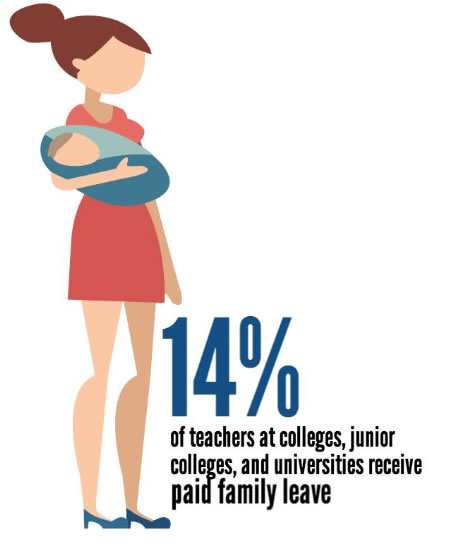Abigail Fallon | Staff Reporter
Published April 14, 2015; 2:15 p.m.
When it comes to maternity leave, most universities give the bare minimum to faculty, and LU is no exception. LU does not provide paid maternity leave for female professors or unpaid paternity leave for male professors.
It grants new mothers 12 weeks of unpaid leave as mandated by the 1993 Family and Medical Leave Act, which only applies to those who have worked for their employer for 12 weeks or more.

In order to receive paid leave for any reason, faculty and staff must use their sick days.
Full-time employees are afforded six paid sick days per year for their first six years at LU.
After six years of employment, full-time employees receive 12 sick days per year. Accrued sick days, however, are capped at 24 days, meaning that the maximum amount of paid leave is approximately five weeks.
Therefore, it is almost inevitable for female professors to take a financial hit after giving birth.
“We have not had any formal policy or practice for paid maternity leave. I know that is a matter of great interest in corners of this university and certainly of other institutions,” President James Evans told The Legacy.
“Maternity leave is often necessary, and it has become an important part of today’s workplace environment,” said Evans. “Every institution needs to have an explicit policy on that particular area of need.”
LU professor and mother of two Heather Brown-Hudson said, “From what I know from others as well as from my experience, most post-birth work arrangements are agreed upon in a frenzy of ad hoc-ness. Everyone attempts to make a deal, negotiate time, bank classes, take a pay cut, etc. There is no precedent for what works best.”
Professor Jill Falk, who gave birth to her second child this semester, was able to spend several months preparing a substitute professor to teach her Online Journalism class and take over her duties at LUTV.
While she took 12 weeks of leave, including both unpaid and sick days, she also enjoyed the help and support of her husband, whose employer gave him four weeks of paid leave.
Falk said, “I think any new mom would tell you 12 weeks is not enough, because you want to stay with your little one for as long as you can.”
She suggested that 14 to 16 weeks of leave for new mothers is adequate, which comes close to the length of the semester anyway.
According to the Bureau of Labor Statistics, 14 percent of teachers at colleges, junior colleges, and universities receive paid family leave while 96 percent receive unpaid leave. (Note: The total number exceeds 100 due to the overlap of workers who have access to both paid and unpaid plans.)
A United Nations study from 2014 found that the only countries that do not require employers to provide paid maternity leave are Papua New Guinea, Oman, and the United States.
To put this into perspective, consider that these countries’ GDP’s are $15 billion, $80 billion, and $17 trillion, respectively.
As women continue to enter the field of higher education, universities will have to consider and perhaps reconsider maternity leave policies.








